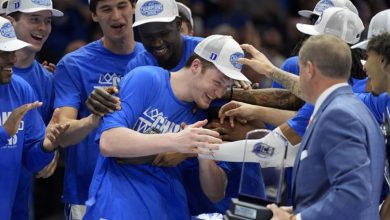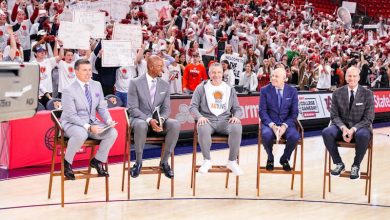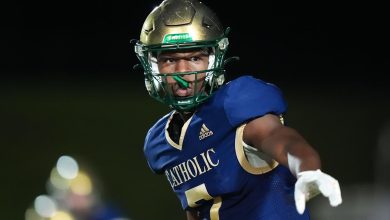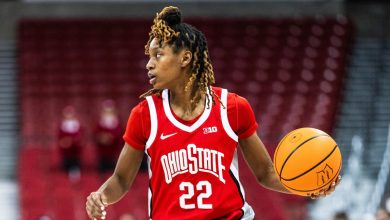Unexpected facts about why Kellen Moore was passed over for the Cowboys head coaching position
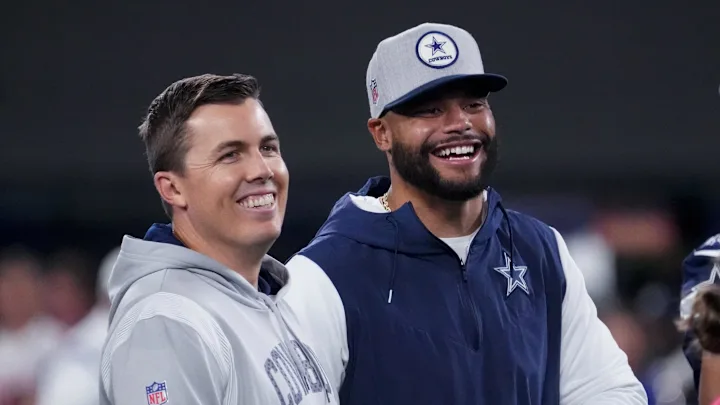
The Dallas Cowboys have been under the microscope for quite some time, not just for their performance on the field but also for the decisions made in their front office, particularly when it comes to leadership. The Cowboys made waves when they decided to pass over Kellen Moore, their former offensive coordinator, for the head coaching role after the 2024 season. Moore was seen by many as the logical successor to Mike McCarthy after a period of strong offensive output under his guidance. However, despite the apparent success of Moore’s offensive units, the Cowboys decided to go in another direction. This surprising move has led many to wonder why Kellen Moore was passed over. Here are some unexpected facts that may shed light on the reasoning behind the decision.
1. A “System Guy” Who Struggled to Prove Himself Without Dak Prescott
One of the first unexpected facts to emerge about Kellen Moore’s situation with the Cowboys is that many in the organization viewed him as a “system guy”—someone who thrived when working with a talented quarterback and a well-established offensive system. Moore’s tenure as offensive coordinator saw a consistent level of success with Dak Prescott at the helm, but when Prescott was injured or unavailable, the Cowboys’ offense was notably less effective.
Moore, like many offensive coordinators, relied heavily on Dak Prescott’s leadership and abilities to execute his system. While Prescott is undoubtedly a skilled quarterback, the question arose as to whether Moore could truly manage a team if he was faced with a quarterback who wasn’t as experienced or as polished as Prescott. Some within the Cowboys’ organization believed that Moore hadn’t been tested enough in difficult situations and hadn’t shown that he could succeed without Prescott running the show. This left some questioning Moore’s readiness to lead a team where he didn’t have a franchise quarterback to rely on.
2. Pressure from Ownership and the Jerry Jones Factor
Another unexpected reason for Moore being passed over involves Jerry Jones, the Cowboys’ outspoken and often controversial owner. Jones has long been involved in the team’s decision-making processes, and his influence over the organization can’t be overstated. The Cowboys have had several high-profile coaching changes during Jones’ tenure, and he has frequently opted for experienced coaches with established resumes.
In Moore’s case, while his offensive success was undeniable, he had only a few years of experience as a coordinator before being considered for the head coaching role. Jones, known for his desire to build a Super Bowl-caliber team, may have been reluctant to hand the keys to the franchise to a relatively untested coordinator. While Moore’s offensive expertise was certainly a factor in his consideration, Jones has historically leaned toward hiring more seasoned coaches, particularly those with head coaching experience. The allure of a more established figure to guide the Cowboys to a championship was likely too strong to resist.
3. Strained Relationships with Key Players
While Moore was undoubtedly beloved by many players on the offensive side of the ball, there were reports suggesting that his relationships with certain players, particularly on the defensive side, were less than ideal. Some insiders revealed that Moore’s management style was not universally praised within the Cowboys’ locker room.
Reports indicated that Moore sometimes struggled to work with key figures on the team who had strong personalities or differing views on team strategy. This tension was particularly noticeable in interactions with veteran players and defenders. While the offense had flourished under Moore’s guidance, some players felt that he was more focused on offensive production at the expense of the team’s overall chemistry.
For a head coach to succeed in the NFL, especially with a team as high-profile as the Cowboys, fostering strong relationships with all units of the team is crucial. This might have been one of the factors that led the Cowboys to explore other coaching options, as they realized Moore might not have the full backing of the entire roster.
4. McCarthy’s Influence in the Decision-Making Process
Another unexpected element of the decision was the influence of Mike McCarthy, the Cowboys’ head coach. Despite Moore’s offensive success, it was widely believed that McCarthy had a significant hand in the offensive scheme during his time in Dallas. While Moore was certainly the architect of the offensive strategy, McCarthy, with his wealth of experience as a former head coach, played a prominent role in shaping the game plan.
Some insiders noted that McCarthy’s presence in the building made it difficult for Moore to completely assert himself as the dominant voice on the offense. Although McCarthy was primarily focused on the overall management of the team, there were moments when Moore’s ideas were either modified or redirected by McCarthy’s influence. The Cowboys ultimately may have decided that for Moore to become a head coach, he needed to demonstrate more autonomy and control over all aspects of the team. The fact that he wasn’t able to fully assert himself in his offensive coordinator role may have been a point of concern for the Cowboys.
5. Reluctance to Promote from Within
The Cowboys’ decision to not promote Moore could also be attributed to their reluctance to promote from within. While many organizations prefer to elevate their coordinators to head coaching positions, the Cowboys have historically shied away from promoting from within their ranks. This is especially true when it comes to positions as important as the head coach, which has seen them look outside the organization for candidates.
Even with Moore’s impressive résumé as offensive coordinator, the Cowboys seemed to favor an external candidate with a broader range of experience. This reluctance to promote from within likely stemmed from the team’s high expectations and their desire for a fresh perspective or a coach who had been tested in the rigors of head coaching, as well as someone who could bring an instant championship mentality.
6. The Unpredictable Nature of the Coaching Market
Another surprising aspect of Moore’s situation was the rapidly changing coaching landscape in the NFL. By the time the Cowboys were evaluating their head coach candidates, the coaching market had become increasingly unpredictable. Several highly respected coaches, like Sean Payton and Jim Harbaugh, were becoming available, and many teams were looking to hire experienced coaches with a proven track record of success.
In a year where there was significant movement in the coaching carousel, it might have been difficult for the Cowboys to justify hiring Moore over someone with more high-level experience. The market was flooded with experienced candidates who were seen as potential game-changers for franchises looking for a new direction. As a result, the Cowboys might have decided that hiring Moore was too much of a risk when compared to established head coaches.
7. The Cowboys’ Need for a Defensive Focus
While the Cowboys’ offense had been performing at a high level under Moore’s guidance, there was increasing pressure for the team to improve its defense. Dan Quinn, the Cowboys’ defensive coordinator, had made significant strides in improving Dallas’ defense, but the team still faced challenges in certain high-pressure situations. With the offensive side of the ball largely under control, some in the organization may have felt the need for a head coach who could focus more on the defensive side of the ball.
Moore, while effective offensively, was not seen as someone who could immediately shore up the defense or lead the team through defensive struggles. This left the door open for a potential head coach with a stronger defensive background or someone who could balance both sides of the ball more effectively. This may have played a role in the decision to look outside the organization for the next head coach.
8. Concerns Over Moore’s Leadership in the Spotlight
Another unexpected reason for Moore’s passing over could be concerns about his ability to handle the intense spotlight of being a head coach for one of the NFL’s most scrutinized teams. While Moore had proven to be an effective offensive coordinator, the pressure that comes with being the face of the Cowboys organization is immense.
Some sources close to the situation suggested that Moore had not shown the level of emotional maturity and leadership necessary to lead such a high-profile team. While he had the technical knowledge and tactical skills to be a successful head coach, the emotional resilience required to handle the media, players, and high expectations of the Cowboys franchise might have been a concern. The ability to handle adversity, speak to the media with confidence, and make tough decisions under pressure is crucial for any head coach, and there were questions about Moore’s ability to manage those aspects effectively.



